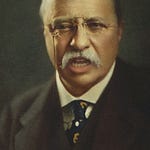Hello, I am Stephen Hawking. Let me share with you a thought that encapsulates a critical challenge of our age: "If machines produce everything we need, the outcome will depend on how things are distributed. Everyone can enjoy a life of luxurious leisure if the machine-produced wealth is shared, or most people can end up miserably poor if the machine-owners successfully lobby against wealth redistribution." When I said this, I was contemplating the intersection of technology, economics, and human welfare. Throughout history, technological advancements have revolutionized how we live and work, from the agricultural tools that freed humanity from subsistence farming to the industrial machines that reshaped economies. Each revolution carried the promise of prosperity but also the risk of inequality, depending on how the benefits were shared. In my lifetime, we began to see the rise of automation and artificial intelligence—machines capable of performing tasks that were once the sole domain of human effort. This trend holds the potential to eliminate scarcity. Imagine a world where machines produce food, energy, housing, and goods in abundance, with little human intervention. A world where everyone could enjoy a life of comfort and creativity, free from the drudgery of repetitive labor.
Playback speed
×
Share post
Share post at current time
Share from 0:00
0:00
/
0:00
Transcript
If machines produce everything we need, the outcome will depend on how things are distributed.
Stephen Hawking
Dec 08, 2024
Timeless Quotes: A Journey Through Enduring Wisdom (private feed for hase@peachwiz.com)
Timeless Quotes: A Journey Through Enduring Wisdom (private feed for hase@peachwiz.com)
Timeless Quotes: A Journey Through Enduring Wisdom (private feed for hase@peachwiz.com)Listen on
Substack App
Spotify
RSS Feed
Recent Episodes










